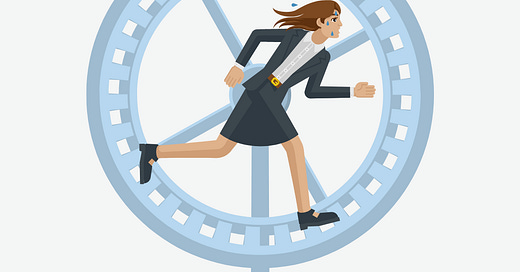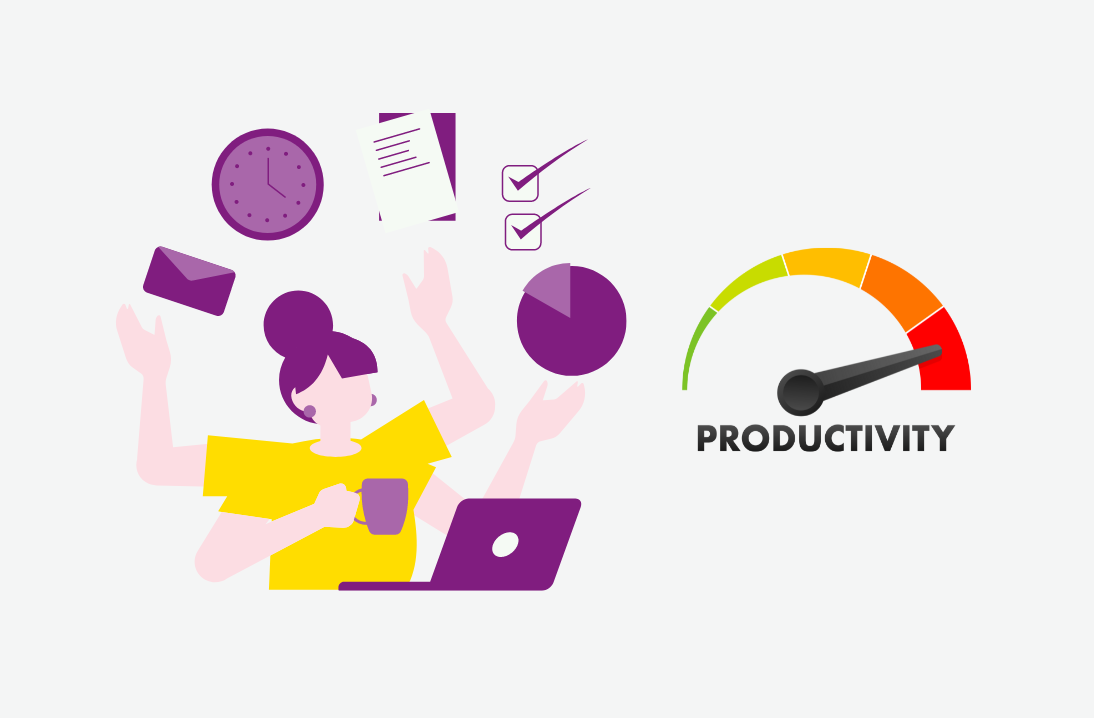The moment I came across LARP used in the context of work was the mother of all TILs. (If you are an internet grandma like me, TIL stands for “Today, I learnt.“) Not only had I not known what the acronym stood for, I also did not know what it meant. It was one of those moments I truly had to confront my naivety and how little prepared I was to handle the American Workplace when I began my career. All entry level employees need to be taught about LARP in their orientation sessions.
What is LARPing?
By definition, LARPing = Live Action Role Playing.
Think of cosplays and 2-day retreats where geeks dress up and role play as their favorite characters.
Now, consider this definition from Collins:
LARP (noun) - A type of role-playing game in which each participant assumes a particular character and acts out various scenarios at events which last for a predetermined time.Substitute the game for your job and ta-da! It will all make sense.
Who hasn’t opened up Slack/Teams/GChat just for the sake of appearing online? An employee’s icon without a green dot is a big no-no after all. Who hasn’t sat in on meetings they weren’t really needed in? Who hasn’t felt compelled to attend an after-work happy hour when they would rather go home and decompress?
Modern work has been designed to infiltrate every corner of our lives. The pandemic and remote work expounded existing problems and made clear two things: One, how little time concentrated work actually requires and two, how many hours meetings and the performance of work gobble up. We know better now, but why haven’t things changed?
Let’s consider my own story for example….
Oops, I Forgot to LARP.
Six months, I worked in a traditional office setup, 40 hour workweek and all the works. I would come in at 10 AM and leave around 5.30 PM. I noticed that for most days I woudl need less than 2 hours to complete my Jira Ticket of the day. Other hours would be spent in meetings where as a complete newbie I would feel lost and useless, or in design discussions where again senior programmers would both present the solution and the problem, or more often than not, I would feel pressured to open up a random document or pretend to look through code or just open up something on your screen to make yourself look busy.
The open office setup made everything worse. The feeling of constantly being surveiled does not make one feel comfortable. My desk was at the beginning of the aisle and, to me, all passer-bys seemed keen to be a judge of my work and my time.
In the beginning, I used to take books with me so that I could read during the downtimes. Confused and derisive glances thrown my way quickly made me realize the faux-pas. Even if you’re done with your work and your manager has nothing more to give you, you have to work! Look busy woman!
Then came Covid. As a semi-introvert, the news that we would now be working from home filled me with cautious optimism and joy. And once we started working from home away from the gazes of Big Brother, I relinquished LARPing. I stopped engaging in extra activities to appear busy. I didn’t even bother keeping my chat icon “available“ and ready for messages at any time of the day. I diligently worked on my core responsibilities and usually finished my day by 3/4 PM. I would then walk my dog for an hour and call it a day.
I removed Slack from my phone and replied to after-hour messages the next day. I stopped going for “social“ events. I moved away from the city and found new outside-of-work friends. However, I started feeling more and more out of the loop. I began to doubt my company’s mission. Are self-driving cars even needed? Who the hell cares? My company did not do a great job moving to remote and the culture subsequently frayed. On top of that as a non-LARPer I was losing touch with what the earnest employee was doing.
Many of my co-workers were single, living alone in the city, without any responsibilities. I was one of the few with caregiving duties and more in tune with the need for work-life balance. Consequently, they worked harder than ever putting in 12 hour days while I worked lesser, taking advantage of lunch breaks and the time saved from commute. This situation put pressure both on the over-workers and the balanced employees. The employer on the other hand reaped the benefits. When the truth is that workers were working more to escape the stressful situation we were all in. Those who were worried for their jobs put in more hours than necessary.
And in my case, my overworking colleagues did not have to put in 12 hours a day, there really wasn’t that much work. They were using the extra time to “study“, read journal papers, and otherwise nerd out. Of course, it’s wonderful that someone is so passionate about their field that they would study after hours, but when it comes from a place of anxiety along with a dollop of humble bragging it does not help anyone.
When a few people in a team kick off a series of performative actions it sets insane expectations on all. It was surprising how quickly it became part of “work”, new meetings were added to “discuss the papers“, readings were assigned for the weekend, and voluntary work turned involuntary. Those who went the extra mile were naturally seen as more productive and better at their jobs.
At that time, I didn’t understand that by not participating in the hoopla I was singling myself out for attack. While I was cracking jokes with my partner and bemoaning the disappearance of work-life balance amongst my coworkers, my coworkers were playing the long game. They understood that it was rigged and that to be considered for the next round one had to dance to the tunes of corporate expectations.
Meanwhile, I dismissed the pull to fit in. I had a partner, a dog, cats, friends. I rolled my eyes and went on with doing just enough. I skipped meetings I wasn’t a stakeholder in, I took a sabbatical and went to India, I didn’t pretend to be interested in a coworkers presentation if I wasn’t. I didn’t go into the office once hybrid started if I didn’t have to.
In short, I was a fool.
I was idealistic and convinced that my manager knew my worth. When I became a Program Manager my work became even more intangible. I loved my role and was very good at it. However, I didn’t realize that PMs have to LARP more than anyone else. You have to make lists and cross them off, you have to organize a meeting to go over plans you have already gone over before, you have to constantly check in with your boss to let them know the state of the budget, you have to make charts, diagrams, presentations, give speeches, engage in cross-team conversations, and above all, you have to promote and sell yourself every chance you get.
I had no idea that when things go south, middle managers and PMs are the one who first get pushed into the line of fire. Moreover, as a young and rather naive PM I had no way of knowing all this. Even if I were to go back in time and educate my innocent self, I don’t know if I would have listened. Because, to play-act at work feels wrong. We already work enough.
From conversations with my ex-colleagues and friends remaining in the tech world, I understand that the situation now is worse. With layoffs the new boogeyman, workers are pummeled in all directions by stress and anxiety. And how do they compensate? By working hard and LARPing harder.
A short guide to LARPing:
When to LARP:
1. When every other colleague of yours is LARPing.
2. When your boss doesn’t interact closely with you.
3. When you work alone or on projects that aren’t visible.
4. When you know that your job is at risk and you have no other choice.
5. When you are willing to give up on time that could be spent on yourself, your family, or your community.When to NOT:
1. When you work in a safe, well-designed, employee-forward company that prioritizes employee welfare and doesn’t try to shove productivity down your throat.
2. You may think that you don’t have to LARP if you’re the boss, but that’s not true, many managers LARP harder than those they manage.
3. When white collar workers realize that individualism is not the answer, and that it's time for collective action.
Only after six months and plenty of space and reflection am I able to talk about this topic with humor. The fact that employees have to prove their worth at every turn is an abominable side effect of the system. The way we work pits coworkers against one another. The bonds between colleagues have grown transient and meaningless.
While employees were concerned with being seen, employers have insidiously benefited from the drama. Wealth inequality has risen, through covid and through the past year of layoffs. Employee surveillance is now the norm and the threat of being replaced by AI is real, even among the workers who coded up the AI in the first place.
What we all need is better worker protection and safeguards.
And less of LARPers and LARPing.
Credit to Anne Helen Peterson and Charlie Warzel for introducing me to this concept via their book - Out of Office
Thanks for reading this post. If you enjoyed it, do feel free to let me know! Or if you didn’t. I benefit from reader feedback.




